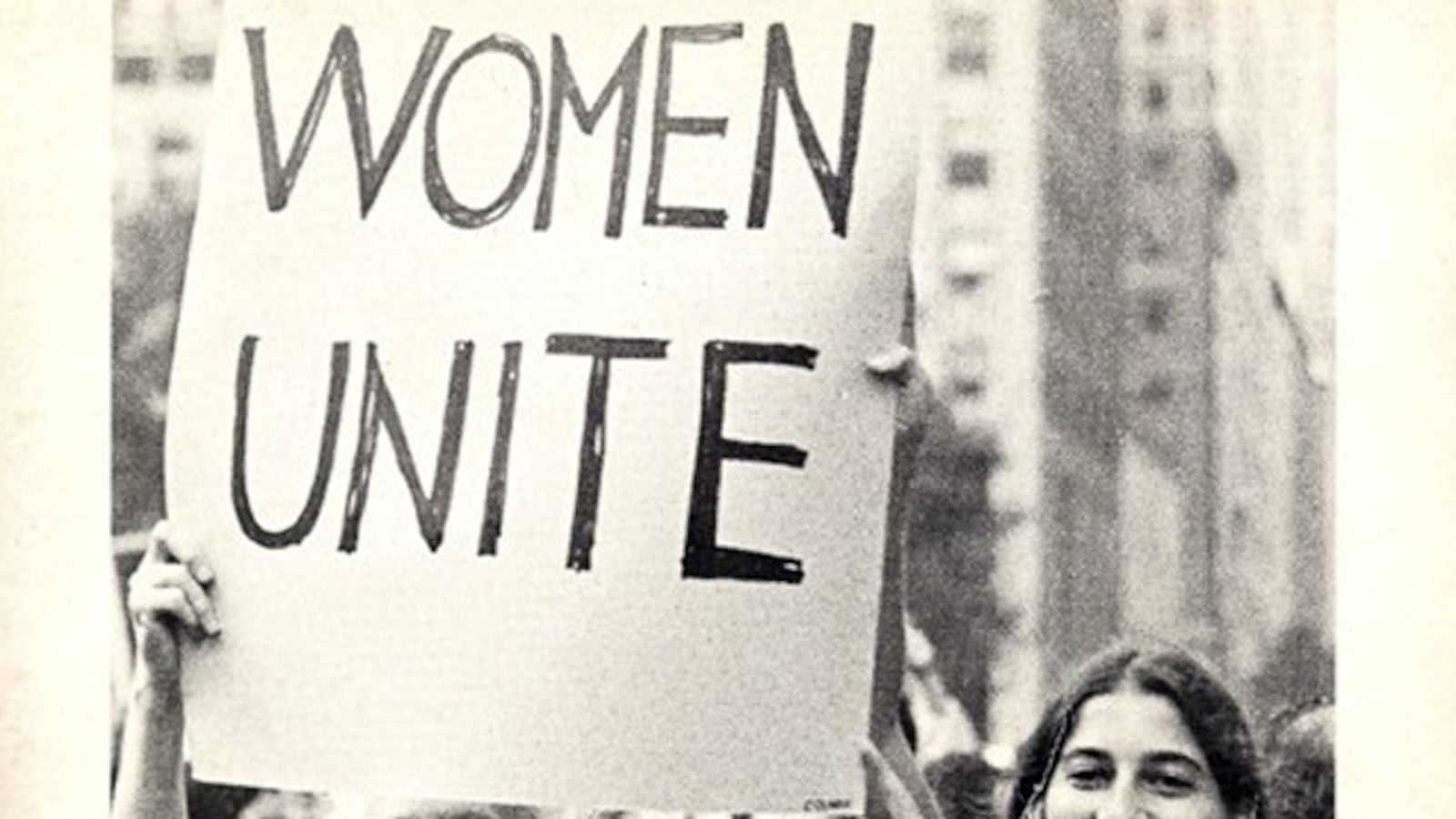“It felt biblical,” remembers Joanne Williams, who discovered the health text in a Denver bookstore in the 1970s.
“[It] changed my life,” says Rebekah Raleigh, a Chicago multimedia editor.
Patti Provance, a Baltimore women's advocate, says she took one look at the book and was hooked: “I literally stayed in my room for hours glued to it.”
Our Bodies, Ourselves was the kind of book that libraries banned and women stashed under their beds like pornography—a fixture of college dorm rooms that shocked conservatives with its candid discussion (and close-up drawings) of masturbation, contraception and the clitoris (spelled out as klit-o-ris). Pre-teen girls poured over it at slumber parties. Boys ran off with it, determined to learn its womanly secrets. The first season of The Wonder Years even had Kevin Arnold committing the ultimate sin when he swiped a copy from his mother’s bedroom.
Forty years after the text was first released, Our Bodies, Ourselves has gone through various revamps: nine editions, 25 translations, e-books, education campaigns—even a pink book cover that caused more than a bit of feminist eye-rolling. The latest edition, a whopping 825 pages, will be released next week, with new chapters on date rape, body image and plastic surgery—“a new edition for a new era,” the authors gush. In its honor, Boston University is hosting a public-health symposium; at Harvard, undergraduates can peruse the changing artistry of body hair in a library exhibit of the early editions. With four million copies sold already, the authors hope to reach a new cohort of young women.

But in an age where every 12-year-old girl can learn about the female anatomy on Google, does Our Bodies, Ourselves still matter? In the beginning, the authors of the book were just 12 women, none of them medical experts, who’d met at a Boston women’s conference, bonding over their inability to find a good doctor. They started gathering in the basement of an Armenian church, and—suddenly realizing how little they knew about their own anatomy—decided to write down their thoughts. Abortion, child-bearing, birth control, lesbianism—nothing was off-limits to these women, who believed, rightly, that with better knowledge, women would be better equipped to deal with their own health.
At the time, abortion was illegal. Female doctors were virtually unheard of in many areas. There was little, if any, sex education in schools. So when the group—who’d later call themselves the Boston Women’s Health Book Collective—decided to release a 193-page pamphlet called “Women and Their Bodies” (what would ultimately become Our Bodies, Ourselves) it was nothing short of revolutionary. “Our Bodies, Ourselves transformed people’s understanding,” says historian Wendy Kline, a professor at the University of Cincinnati and the author of “Bodies of Knowledge,” about the book’s influence. “It was revolutionary both because it provided so much information, but also because that information was, for the first time, in lay-people’s terms.”
Our Bodies, Ourselves is still easy to read and simple to understand. But over the years, it’s had to change its tone. (See: 5 Ways the Text Has Changed.) Gone is the anti-patriarchy bent, as well as the iconic raised fist that once graced the title page of the original hand-printed 1970 edition. No longer do the authors proclaim, “We must destroy the myth that we have to be groovy, free chicks.” (Do we even know what that means?) Instead of essays on “capitalism,” there are chapters on changes in the healthcare system, environmental health risks, and how to be an activist in the 21st century (less marches, more Twitter).
There is still a section on Lesbianism—and a new “Relationships” chapter comprised entirely of readers’ candid conversations. But neither has quite the punch of the original lesbian rallying cry: “In Amerika, They Call Us Dykes.” As for the change in cultural attitudes toward sex: let’s just say there’s no longer a need for the phonetic spelling of “clitoris.” “There will always be people who think that the later text has lost its original punch,” says Judy Norsigian, the cofounder and executive director of the Boston Women’s Health Book Collective (now called Our Bodies Ourselves). “But we want to appeal to a mainstream audience.”
Our Bodies, Ourselves remains theoretically feminist, of course—even if there is a conscious effort made not to overuse the word. And the authors, once strangers in the presence of their own bodies, have become experts: testifying before Congress about birth control methods and silicone implants; arguing for better safety data on plastic surgery; quoted on hundreds of health issues over the years. They are the first to remind young women that their reproductive rights remain shaky; that nearly 1 in 5 women do not have health insurance; and, yes, that Michele Bachmann believes the vaccine for cervical cancer can cause mental retardation.
But they recognize that the problem for many of today’s young women may not be that information is scarce, but the opposite: that they’re incessantly bombarded by it. Sexual imagery is a staple of television and pop culture; the average teenager is subjected to 500 advertisements a day, the vast majority of them nipped, tucked and airbrushed to perfection. So while overt sexism and lack of access to birth control may not be front and center on many young women’s minds, STDs, underage sex, and how they feel about their bodies certainly is. More than half of 13-year-old girls are dissatisfied with the way they look, a number that increases to 78 percent by the time they turn 17. “Girls are immersed in awful media images before they get any actual information about their bodies,” says Patti Provance, of the National Women’s Studies Association.
Which makes today's version of the text even more important: as a way to cut through the noise. “In the beginning, it was about educating women about what they didn’t know,” says Kiki Zeldes, the book’s senior editor. “But it’s become more about helping women sift through the misinformation. You know, who’s telling women that a vaginoplasty is going to give them a better vagina?”
As Erica Jong, the famed author of Fear of Flying, quips: “Tell Michele Bachmann, Sarah Palin and other anti-choice politicians to please read.”






